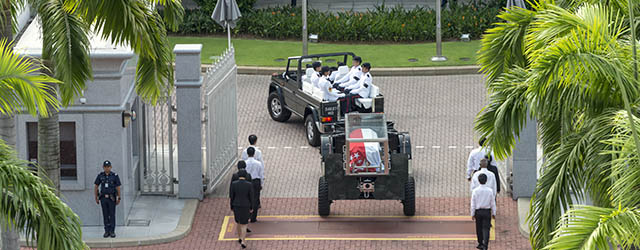During the state funeral cortege of Lee Kuan Yew, Singapore’s founding prime minister, Singaporeans were urged to salute rather than take photos using their smartphones, a vivid reminder of the government’s preoccupation with political correctness.

Yet beneath the patina of conformity, the city-state is experiencing something of an identity crisis as it ponders a future without its founding father’s guidance. Income inequality, high levels of household debt—which reached 76.3% of GDP in the third quarter of 2014, according to the Monetary Authority of Singapore—and soaring property prices are fueling national angst. The MAS is so worried about debt levels that in April it imposed borrowing limits on unsecured credit. From June 1, loans will be limited to 24 times the borrower’s monthly income, falling to 12 times by June 1, 2019.
Under Lee’s watch, Singapore was exceptionally adept at building a first-world economy, but social welfare did not figure prominently in his lexicon. It has, however, risen on the agendas of many Singaporeans who believe there should be a wider social safety net. Even so, Daniel Martin, senior Asian economist at think tank Capital Economics, believes the government will be reluctant to accept increased public spending. “Lee had a natural suspicion toward large-scale welfare, but that suspicion, like many of his attitudes, is embedded in the current government,” says Martin. “Pressure for increased welfare will mean creeping increases, but I would be very surprised if there were dramatic increases.”
Singapore’s stubbornly low birth rate means the country relies heavily on immigration for population growth—a situation that poses challenges for the government, says Teresita Cruz-del Rosario, visiting senior research fellow at the Asia Research Institute. “The presence of foreign labor is a source of growing controversy and resentment. Many question whether the rapid growth of Singapore, which was in part due to the influx of migrant labor, was worth the social costs.”
According to the Migration Policy Institute, a nonprofit think tank in Washington, DC, the influx of migrants into Singapore has eaten away at the country’s nationalist foundations and created a country that feels more like a “transit point.” Lee Kuan Yew’s legacy is assured, however, and Rosario says sustaining it will not be an issue. She says the major challenge facing the government is its ability to model a society with a different set of priorities than those that existed during Lee Kuan Yew’s time.



